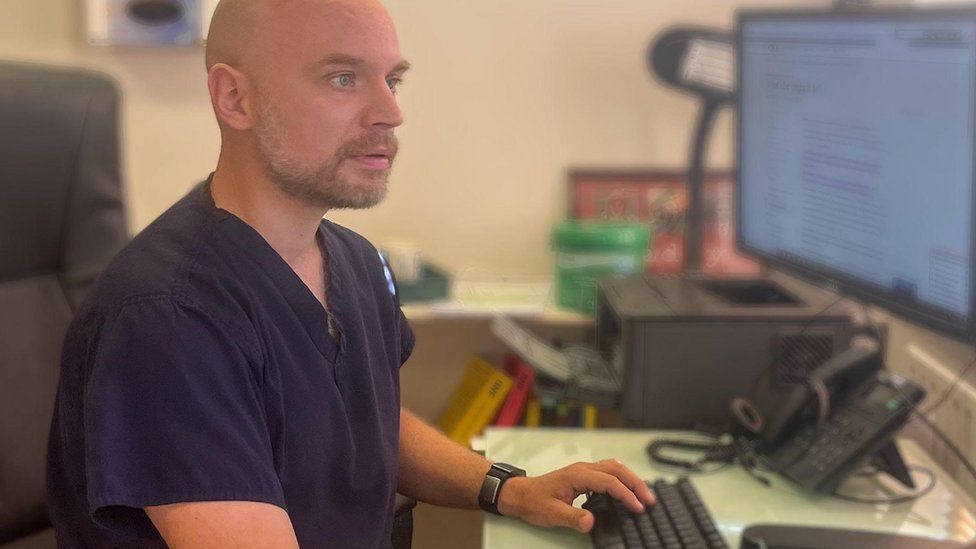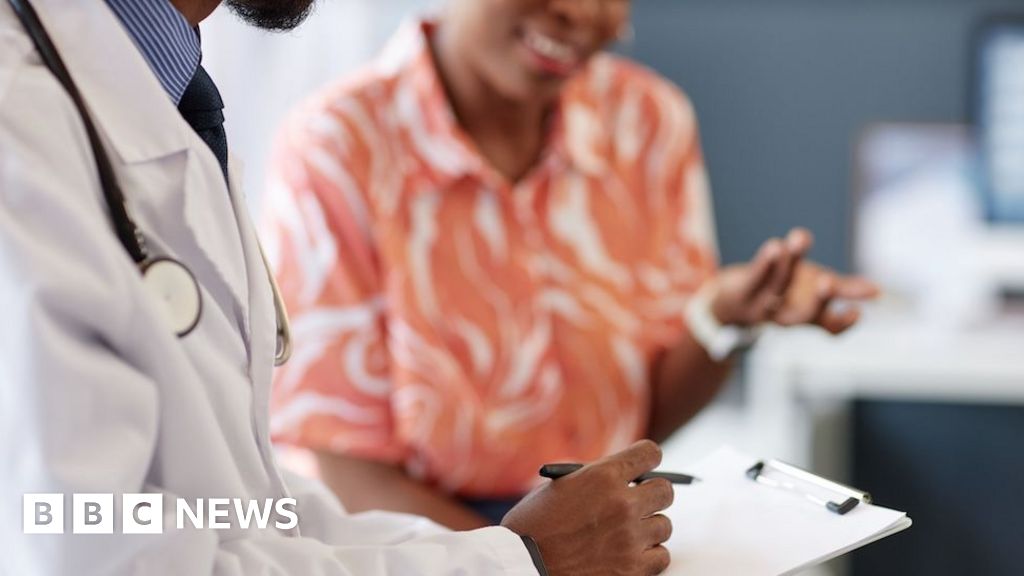ARTICLE AD BOX
 Image source, david triska
Image source, david triska
David Triska only realised he was suffering burnout when a colleague intervened
By Alex Bish & Jonathan Fagg & William McLennan
BBC News
The number of doctors seeking help for mental health issues has risen by more than three quarters within two years, according to figures from a specialist treatment service for NHS staff. For one GP, the relentless stress of the job led to him taking three months off work with burnout.
David Triska is no stranger to high-pressure situations. As an army medic, he served two tours of Afghanistan.
But mounting workloads at his village GP surgery left him feeling "hollowed out and spent". Simple tasks, like unlocking his car or making a meal, became a challenge - an experience he describes as leaving him feeling "like a husk of a human".
"At that extreme point, I couldn't see why I needed to be here anymore," Dr Triska said.
He is not alone. Since the year ending March 2021, there has been a 77% rise in the number of doctors seeking help for mental health issues, according to figures shared with the BBC by a confidential support service for NHS staff.
More than 5,600 doctors used the NHS Practitioner Health programme in England in 2022/23, with about a third having thought about taking their own lives.
Most cases stemmed from difficult working conditions, said the service's medical director, Zaid Al-Najjar.
The figures "reflect distress in the workforce", with demand expected to increase further during winter as the NHS faces its busiest period, he said.
GP David Triska served as an Army medic during two tours of Afghanistan
For Dr Triska, it took a colleague's intervention before he realised he was suffering burnout - described by the World Health Organization as a syndrome resulting from chronic workplace stress that can lead to feelings of exhaustion.
He was supported by NHS Practitioner Health, but still needed to take three months away from work at his surgery in Witley, Surrey.
"That was the only way to recuperate, which is extraordinary in a time when we are the people supposed to be providing care and it's impossible in our own workplace and work system to provide that care for ourselves," he said.
Dr Al-Najjar said factors like the "extraordinary" working conditions of the pandemic and "chronic underfunding of the NHS" contributed to the mental health issues they treated.
He said he feared the increase in people using the service was "just the tip of the iceberg", adding: "There will be a lot of people still worried about obtaining help, because they are worried about the effect it might have on their career."
"A service like ours, offering confidential care, has never been more important," he said.
Your device may not support this visualisation
The NHS Practitioner Health service was founded in 2008 in London to provide confidential support for doctors. It expanded to cover all doctors in England in 2019 and by 2021 was available to eligible staff across the NHS.
Figures obtained by BBC South East show that 3,194 doctors used the service in England in 2020/21, rising to 4,814 in 2021/22 and 5,667 in 2022/23.
About 90% of people using the service are doctors, with GPs over-represented at about 40% of the total.
The British Medical Association (BMA) said the figures were a "stark and painful reminder of the immense pressures" that GPs face.
Dr Samira Anane, deputy chair of the BMA's GP committee, said there is not enough staff to meet soaring patient demand, adding: "All of this puts an enormous amount of pressure on GPs."
Your device may not support this visualisation
More than 40% of doctors felt unable to cope with their workload each week in 2022, up from 30% in 2021, according to a survey by the General Medical Council.
The government says the NHS England workforce plan aims to train more doctors and nurses, and thousands of new roles will be created to work alongside them.
The Department of Health and Social Care said: "The wellbeing of all those working in the NHS is vital and extensive coaching and support and practitioner mental health services are available for all staff.
"There are more than 2,000 additional doctors and 31,000 additional staff working in general practice compared to June 2019 as well as a record number of trainees."
If you have been affected by any of the issues raised in this article you can visit the BBC Action Line for help.
Follow BBC South East on Facebook, on Twitter, and on Instagram. Send your story ideas to southeasttoday@bbc.co.uk.
Related Internet Links
The BBC is not responsible for the content of external sites.

 1 year ago
33
1 year ago
33








 English (US) ·
English (US) ·